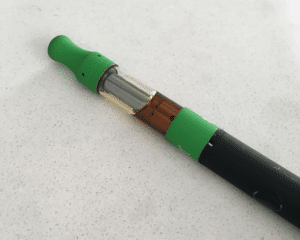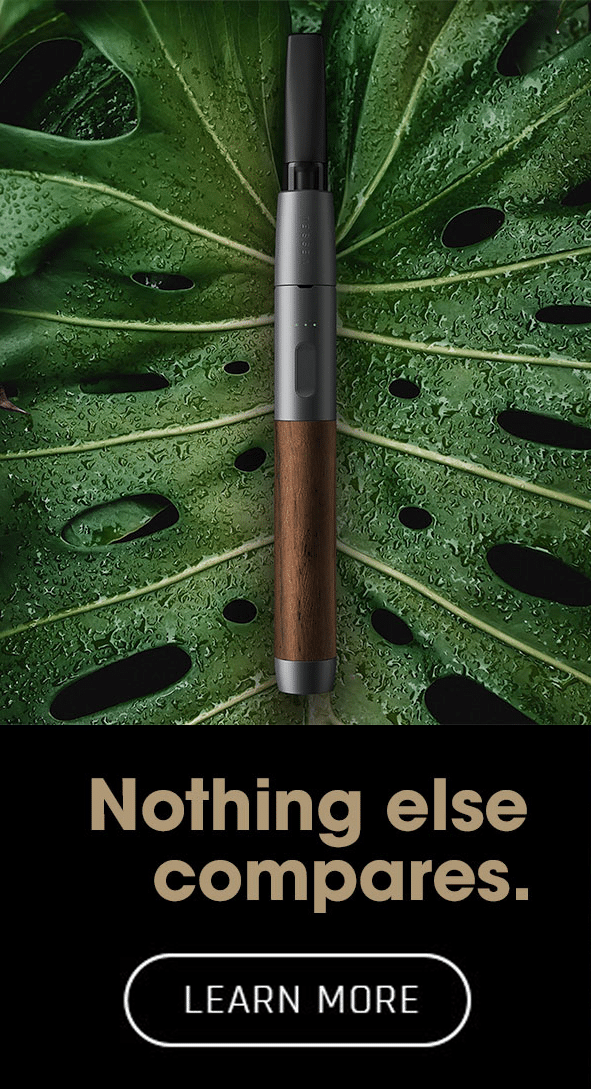Is Vitamin E Acetate to blame for the sudden increase in vaping deaths and illnesses in the United States? If so, how is Vitamin E Acetate harmful? Our Cannabis Consultants weigh-in on the topic.

Vaping Death and Illnesses in the United States
As of October 11, 2019, the CDC has reported 26 deaths and 1,299 lung injury cases associated with the use of vaping and electronic cigarettes.
Of the reported cases, approximately 78% reported vaping THC products (32% reported exclusive vaping of THC products). Moreover, the CDC has received cases from 49 states and Washington D.C.
A federal investigation indicates that ~50% of the THC containing vaping products sampled contain vitamin E acetate.
Vitamin E Acetate is used as a diluent thickener additive for THC vaping products and is more likely to be used by illicit manufacturers.
The purpose of adding Vitamin E Acetate is to convert the cannabis extract into the correct consistency for vaping.

What is Vitamin E? — A family of compounds
“Vitamin E” is a term describing a group of eight fat-soluble compounds that naturally occur in vegetable oils (scientifically known as tocopherols).
We consume Vitamin E in foods such as almonds and avocados.
Important to note, Vitamin E acetate is a derivative of Vitamin E. The two molecules differ from each other by an acetate group (circled in the figure above).
While orally ingesting vitamin E is safe and beneficial for humans, inhaling vitamin E (and similar compounds) can be fatal.
Vitamin E is a lipid, and inhalation of lipids is highly toxic to the lungs.
When inhaled, Vitamin E adheres to your lung surfactant that is the liquid lining of your lungs. Lung Surfactants are made of lipids and proteins.
The lung surfactant is responsible for transporting oxygen in the air and into your lung cells. It does so by reducing the surface tension between the air and liquid interface within the lungs.
When vitamin E binds to your lung surfactant, your lung cells are unable to intake oxygen.
In other words, lipids such as vitamin E and vitamin E acetate prevent oxygen from entering your lung cells, and ultimately, your body.
As a result of Vitamin E acetate blocking oxygen intake, your lung cells die — a potential cause of vaping deaths.
In comparison to vitamin E, it is proposed that the acetate group in vitamin E acetate results in a stronger bond to lung surfactant.
However, the lipophilic tail of Vitamin E (and vitamin E acetate) is the strongest binding factor for lung surfactant.
Thus, regulators should heavily scrutinize whether vitamin E can be considered a safe additive in vaping products.
Why Vitamin E is used as an additive for THC vape cartridges?
In order to vape THC concentrate, manufacturers must make the THC concentrate into the proper consistency. To accomplish this, manufacturers use diluent thickening agents such as Vitamin E.
Presumably, manufacturers adding vitamin E to THC vape cartridges viewed the additive as safe. After all, Vitamin E is a natural product and the FDA lists it as a nutrient.
In fact, the FDA also lists vitamin E acetate as a nutrient.
Perhaps more frustrating is that U.S. patents exist for THC carts containing Vitamin E as ingredients.
Prior to THC vaping products, the cosmetics, supplements, and food industries used vitamin E as an additive.
Within skincare products, Vitamin E is a common additive with UV protectant properties. In fact, vitamin E’s antioxidant properties protect the skin from free radicals caused by UV light.
The CDC has received few reports of negative side from vitamin E across these sectors. Thus, it is hard to fault THC product manufacturers for using vitamin E as a thickening agent.
Over time, it was realized that the stability of vitamin E acetate is greater than vitamin E. Vitamin E acetate can better handle stress such as heat and light.
For this reason, vitamin E acetate has largely replaced vitamin E as an additive in cosmetics and foods.
Thus, likely due to the longer shelf life of vitamin E acetate, THC vape cart manufacturers opted to use this derivative of Vitamin E.
Avoid using THC vape products obtained from the illicit market
To prevent vaping deaths and illnesses, we recommend that you throw out THC/CBD vaping products manufactured in the illicit market.
Instead, please only use THC vaping products sold and tested by regulated markets. In most cases, within regulated markets, the manufacturers offer test results that are readily available for the consumer.
When test results are available, we encourage you to pay close attention to the ingredient list. Avoid any products with vitamin E and vitamin E acetate.
Until further notice, we suggest that you avoid inhaling any compound from the vitamin E family.
For further consultation, please reach out to our expert cannabis consultants.







